In 1981 — 37 years ago! — Brad and I hiked (with a safari group of 4-H kids half our age) about an hour above the

10,000-foot ranger station on 18,000-foot Mount Kenya — and were told of an American who’d gotten lost recently, in a stunted landscape prowled by buffalo, elephants, monkeys . . . and leopards.
I skipped the next morning’s lion-chasing trip to sit in front of our pup tent and bat out a first draft of a short story based on that fragmentary account. I remember looking up to realize I was the object of fascination by a half-dozen Masai women who’d never seen anything like the flyweight typewriter I always traveled with.
Fast-forward 32 years, when I made re-writing that story a significant part of my Fairfield University studies, and ultimately part of my MFA thesis. One of my most prized gurus urged that I develop the character of the would-be rescuer, which I did. Also, I’d originally told part of the story from the leopard’s point of view. He said no, can’t do that (even though, as I noted, Ernest Hemingway used an African lion’s point of view in “The Short Happy Life of Francis McComber”). Out came the leopard.
I’d made a few pre-MFA efforts to polish and place the story. Now I went at it with new energy — but with no better result. Last year, a hint from an almost-took-it editor persuaded me to make the leopard visible again, although I accepted the wisdom of my MFA classmates in our postgraduate writing group to make it an insentient animal — describing its actions, but not (as Hemingway had) imagining its thoughts.
It took several more rounds of rejections before D.S. Davidson, editor of the online Tigershark Literary Magazine, invited stories placed in the Southern Hemisphere. My story was a bit longer than he wanted, but he had me send it, and liked it. It’s out this week, the centerpiece of his Issue 18 (on pages 9-19).
Read it ==>here
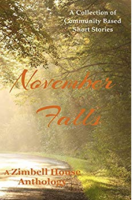 earlier works, invited stories that developed a strong sense of community in a town that should be named November Falls. Place it anywhere, in any time, but make the community one that readers could readily identify and empathize with.
earlier works, invited stories that developed a strong sense of community in a town that should be named November Falls. Place it anywhere, in any time, but make the community one that readers could readily identify and empathize with. earlier works, invited stories that developed a strong sense of community in a town that should be named November Falls. Place it anywhere, in any time, but make the community one that readers could readily identify and empathize with.
earlier works, invited stories that developed a strong sense of community in a town that should be named November Falls. Place it anywhere, in any time, but make the community one that readers could readily identify and empathize with.
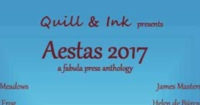
 them home.
them home. 10,000-foot ranger station on 18,000-foot Mount Kenya — and were told of an American who’d gotten lost recently, in a stunted landscape prowled by buffalo, elephants, monkeys . . . and leopards.
10,000-foot ranger station on 18,000-foot Mount Kenya — and were told of an American who’d gotten lost recently, in a stunted landscape prowled by buffalo, elephants, monkeys . . . and leopards. published the first story I got into print after completing my Fairfield University MFA, “Consultants.” I tried them again; they liked it. It’s just out in Summer 2018 Issue #160. I got a paper copy in the mail today. For whatever reason, their online version isn’t posted yet, but you can read “Matches” ==>
published the first story I got into print after completing my Fairfield University MFA, “Consultants.” I tried them again; they liked it. It’s just out in Summer 2018 Issue #160. I got a paper copy in the mail today. For whatever reason, their online version isn’t posted yet, but you can read “Matches” ==> an idea spun into a short story that I knew would have limited or no appeal to the young adults, MFA students, who edit many of the country’s literary magazines. I sent it out to several anyway. No takers.
an idea spun into a short story that I knew would have limited or no appeal to the young adults, MFA students, who edit many of the country’s literary magazines. I sent it out to several anyway. No takers.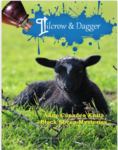 was compiling an anthology of short stories on the theme “black sheep”. I had a story about an unwelcome mourner at a burial service, which I thought might fit. It did. Volume 4 Number 4 is available at Amazon and other booksellers, but you can read it now
was compiling an anthology of short stories on the theme “black sheep”. I had a story about an unwelcome mourner at a burial service, which I thought might fit. It did. Volume 4 Number 4 is available at Amazon and other booksellers, but you can read it now 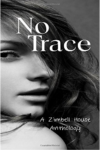
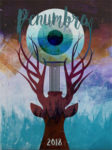 May 2018 issue of the California-based Penumbra Art and Literary Journal, which includes my
May 2018 issue of the California-based Penumbra Art and Literary Journal, which includes my themselves when I jot down and develop a fragment of memory or description of place. Empty Nest, just published in the Bowling Green online magazine, draws from a very real memory of taking our daughter to college. The rest, I assure you, is pure fiction.
themselves when I jot down and develop a fragment of memory or description of place. Empty Nest, just published in the Bowling Green online magazine, draws from a very real memory of taking our daughter to college. The rest, I assure you, is pure fiction.